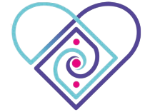(Aether Bios Clinic) Bridgeford’s Best Bites: Osteopathy Tips
WHIPLASH INJURY
A sprain of the soft tissues of the neck, when they become stretched and damaged. It is common after a car accident when the neck is forcefully thrown forwards, backwards or sideways; the extreme flexion of the neck then whips back in the other direction. It can also occur from a blow to the head during sport or an assault. The cervical spine, or neck is designed to be flexible and is less protected than the rest of the spine leaving is more vulnerable to injury.
Anatomy: The neck consists of 7 cervical vertebrae; the first 2, the atlas and axis are shaped differently from the remaining five and allow movement of the skull from side to side and backward and forward. Between each vertebrae is a disc and a nerve exiting from the spine. There are many complex muscles and ligaments in the neck to allow its movement and support. The anterior longitudinal ligament, running along the front of the spine is often injured during whiplash.
Symptoms: Common symptoms include pain, tenderness, discomfort and stiffness in the neck area with limited mobility; swelling, muscle spasms, headaches, pain in the shoulders, arms, jaw and lower back. Less common symptoms include pins and needles, numbness or weakness in the arms and hands, tiredness, dizziness, insomnia, poor concentration, memory loss and irritability. Symptoms may become worse a few hours to a few days later. You will need to seek urgent medical attention if you have more severe symptoms such as blurred vision, nausea, ringing in the ears or difficulty breathing.
Causes: Common causes include road traffic accidents and collisions, a blow to the head by a heavy object, during sports or an assault, a slip or fall where the head is jolted backwards, head-banging, a roller coaster ride and bungee jumping. The over-extension and recoil damages ligaments and tendons in the neck. You are more at risk if you are a woman because your neck muscles are often less developed, an athlete particularly in high risk sports, you have poor posture or congenital spinal problems; also if your car head restraints are badly fitted. Complications are more likely if you are over 65, have immediate pain after the injury, have nerve damage or numbness or are unable to walk or sit down.
Diagnosis: You will need to see your doctor if you have pain and stiffness in the neck, numbness or tingling following a road traffic accident or impact to the head. The doctor with examine your neck for the range of movement, swelling, tenderness and damage to muscles, ligaments and discs, and may also test your reflexes. X-rays, MRI or a CT scan may be required to rule out more serious injuries, such as a fracture, spinal cord compression or nerve injury.
Treatment: Self-help includes using ice packs to reduce pain and swelling, heat packs to soothe muscle pain, maintaining a good posture, especially at the computer, avoid sitting or lying down for long periods, sleeping on your front or using more than one pillow, a supportive pillow may be helpful. Whiplash is thought to get better on its own in a few weeks or months or after some basic treatment; keeping your neck mobile and continuing with normal activities, specific exercises and stretches, taking paracetamol or ibuprofen painkillers or something stronger from your doctor if needed. You may be referred to a specialist or pain clinic if the pain persists for a long time.
Osteopathic/Manual Management: Take a detailed case history to understand the nature of the problem and surrounding issues. Examine the neck, shoulders, arms, jaw and spine and all surrounding tissues; muscles, ligaments, nerves, fascia, etc., for movement, strength and functionality and assess nerve pathways. Consider the effect of the force of impact on the whole body. Perform orthopaedic and neurological tests. Treat to reduce muscle tension, nerve irritation and soft tissue pain. Advice regarding specific exercise and stretching the neck and shoulders. Treatment may include manipulation, deep soft tissue massage, trigger point therapy, muscle energy techniques, fascial techniques, dry needling, etc.
We are happy to advise you on your health matters and offer a free 15 minute joint and spinal check, without obligation.
Lin Bridgeford DO KFRP MICAK MICRA FSCCO MSc
Registered Osteopath & Kinesiologist & Yoga Teacher
Aether Bios Clinic
Saltdean
01273 309557
07710 227038
